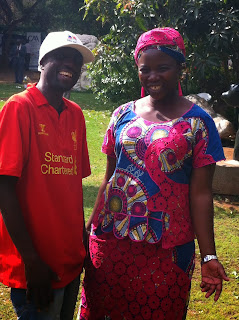Why do we bring books home? Loads of reasons; we need time to read, we want to read at leisure, we want to read and have a cup of coffee, we want to share the book, talk about it to others, read it out loud, fill an empty evening with words, prove a point, win an argument, maybe read it twice or thrice. We need to take them home.
Harare City Library is a lending library. You could argue that as a city library its business is urban. The people who use the library live and work in and around Harare. There are a lot of people in Harare (over a million for sure).
Hang on a minute. Let's pause. Harare is not just a city, it is the CAPITAL CITY, the political, economic and social hub of the country (others would argue perhaps on this but it would be one of those arguments that would need you to bring some books home perhaps, take a blood pressure tablet or two). So as a capital city, it serves more than its residents, it is essentially the nations city and the activities inside this city reach out across the country ( if not it should!).
So when we talk about bringing books home from Harare City Library, it gets complicated. Home for the vast majority of Zimbabweans and Hararians is rural, not everyone in the city was born there. Rural - urban linkages are the veins and arteries of the nation, it's lymphatic system - food, money, help moves back and forth. I believe that when we break this link bad things happen - we lose touch, we grow too far apart, inequality deepens, we get lost.
It is not feasible, or even desirable for Harare City Library to lend hard copy books to the nation. Good lord, no! We have a hard time engaging and servicing those Hararians that do use the library.
But there are a few things that we can do, must do, to really deserve the Harare in our name. We must reach out where we can. We must reach out with books and skills, and we must reach out with technology.
The first we are doing, in a small way, with our old books (weeded stock) and our human capital (staff outreach). Take the recent Mhondoro visit, old books were given, staff talked about libraries and reading and committee members did an HIV awareness session using materials from my organisation, SAfAIDS that we had left over from the ZIBF. It is good to see some links between all these library associations. Harare City Library is ideally placed as a hub. (Below: evening reflections in the library windows)
On Friday this week I took two boxes of old books to the annual prize giving and award ceremony at Sungwi Primary School deep in Makonde District for use by the children, the teachers and the parents. There is no library there. At all. In any of the primary or secondary schools in the area. The heads of nearby schools came along, each received a few books and some SAfAIDS IEC. What was just a token through my husband being invited as guest speaker to the school where his sisters' children go and where his mother lived for sometime, was a big deal to those who received them. It felt more than good to do this, it felt right. (Below: storing the books away)
This far away rural school has an ambition, for the parents to buy a laptop. If they do achieve this, imagine the world of books they could access, or information they could receive from Harare Ciry Library as an institutional member - eresources, training opportunities, skills building and more. Imagine the children's faces if a bus trip to Harare included a library visit with a story telling event built in and an ICT or social media awareness session to boot...
Maybe we are spreading ourselves too thin with this dream, but I would rather we dream big and try to level the playing field a little more. Anyway, here are some pictures of a rural school trying to pick itself up and get the community re-engaged. Hope is vital, and it requires us to act.


















































